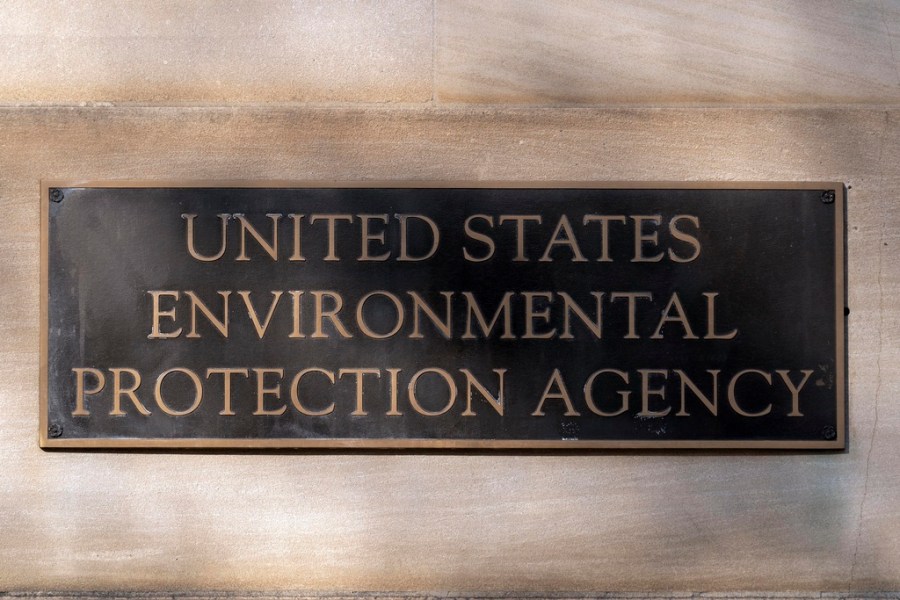
The Constitution clearly gives Congress the power to legislate, but in today’s world, federal agencies have mistakenly assumed that power. As a result, the size and scope of the administrative state has expanded beyond anything our nation’s Founders ever imagined. And since they aren’t subject to a voting ballot, they can use executive rulemaking power however they see fit with little to no accountability. One way they do that is by issuing rules and regulations.
Unelected, executive branch officials regulate nearly every aspect of American life from the cars we drive to the food we eat. Under the Biden administration, over 800 new rules were handed down. As a result, regulatory costs have skyrocketed. Since 2020, President Biden’s agency rulemaking has cost taxpayers nearly $1.4 trillion. It has also slowed the economy in Utah. Researchers at the Mercatus Center estimate that the increase in regulations from 1997 to 2015 resulted in over 1,353 jobs lost annually, 7.35 percent higher prices and an additional 47,016 people living in poverty in Utah alone.
Additionally, these regulations often ignore the opinions of state and local leaders and instead promote a political agenda. For example, federal agencies use the National Environmental Policy Act (NEPA) to shut down businesses and projects when allegations of environmental hazards are raised. This abuse of power has delayed construction on an essential highway in southern Utah, a project that local communities desperately need to sustain unprecedented growth in the area, and a project that local officials negotiated with the federal government to build.
We don’t fully know the cost of every rule and regulation currently in effect. Many remain unquantified. In fact, the White House Office of Management and Budget doesn’t review rules from independent agencies or financial regulatory bodies. And the cost of regulatory dark matter — guidance documents, proclamations, letters, etc. — from thousands of agencies is purposefully omitted.
Federal agencies have not only had the power to make rules and enforce them. They’ve also had the freedom to avoid accountability. Agency heads are routinely called to testify before Congress and time and time again they refuse to answer questions from members. This is not how our government was intended to operate.
Fortunately, 2025 presents a unique opportunity to roll back crushing regulations and make our government smaller and more accountable to the American people. Two important events occurred in 2024 that can help us build a regulatory state that’s “thin to the point of invisibility” like the one President Calvin Coolidge presided over.
First, the overturning of Chevron Deference by the Supreme Court. In 1984, the high court gave federal agencies freedom to interpret ambiguous statutes and required courts to defer to an agency’s interpretation. But last year, the Supreme Court overturned that ruling, empowering Congress. Now is the time for members to write clearer laws so that there’s no room for agency interpretation. Congress should focus on outlining intent and forcing agencies to answer when they step out of line. That’s our constitutional responsibility, and Congress needs to jealously guard its lane.
Second, the election of Donald Trump. President Trump has promised to usher in the largest regulatory reduction in history. He also pledged to eliminate ten rules for every one rule. President Trump’s Cabinet picks — including Lee Zeldin and Doug Burgum — will play an important role in making his vision a reality. But without Congress, any reforms they make can, and likely will, be undone by the next administration.
Slashing regulations and holding agencies accountable has been a priority during my first term as a member of Congress. I introduced bills like the FREE Act — which would speed up our federal permitting process — and the Enhanced Regulatory Flexibility Assessment Act — which would require federal agencies to report to Congress on the economic impact their rules have on small businesses. These kinds of bills protect local governments, entrepreneurs and everyday Americans from the administrative state, and we need more like them.
I also joined the new Delivering Outstanding Government Efficiency (DOGE) Caucus. Together with my colleagues, we will work hand-in-hand with the new Department of Government Efficiency (DOGE) led by Elon Musk and Vivek Ramaswamy to eliminate excess regulations and government waste.
Restructuring our regulatory state is an ambitious agenda, and it’s the kind of change that scares people. But if we want to turn this country around, unleash innovation and boost our economy, we need to have a lower tolerance for inefficiency and bureaucracy.
Celeste Maloy represents Utah’s 2nd District in the U.S. House of Representatives. She also serves on the House Committee on Appropriations.












